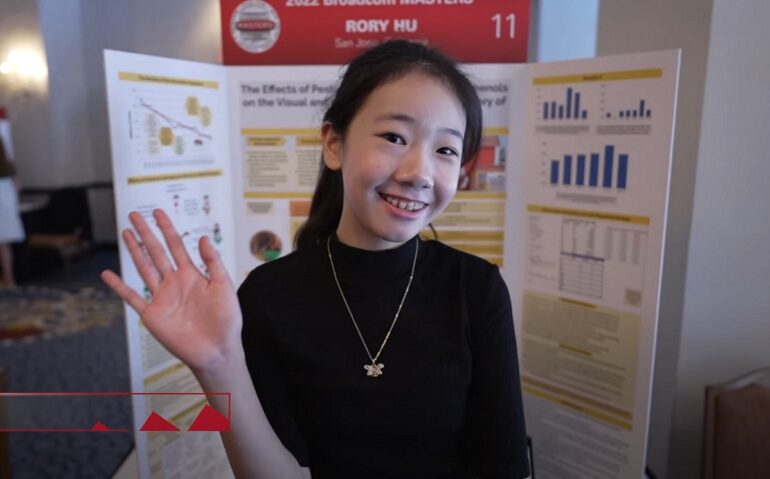May 9, 2023
SAN JOSE, CA—Honeybees are responsible for about 80% of the world’s pollination and they’re dying at high rates. Without bees, plants that rely on pollinators would no longer be able to survive, which would then cause a massive change in several ecosystems.
The honeybee population decline phenomenon known as Colony Collapse Disorder will jeopardize the global food supply chain and has baffled scientists; until now.
When 7th grader Rory Hu came across a news article about the global decline in the honeybee population, she was inspired to do something about it.
The San Jose native researched the population decline and found harmful pesticides have been damaging honeybees’ learning and memory abilities. Impaired bees can’t harvest pollen and have a hard time finding their way back to the hive, reports The74.
With the help of a local beekeeper, Hu implemented an experiment to mollify these effects. She created artificial flowers tinged with caffeine and a food supplement called T-Polyphenol. Her experiment intended to use the compounds to improve the bees’ memories.
Hu’s experiment worked and the bee colony thrived.
For her efforts, Rory won the Department of Defense STEM Talent Award of $10,000 at the 2022 Broadcom MASTERS, a national science and engineering competition for middle school students.
“Knowing that I would even be able to have a small part in [solving the problem],” Rory said, “it would be extremely gratifying to me.”
However, the awards are overwhelmingly Asian and Caucasian, which could jeopardize the existence of the award because it amplifies “white supremacy.”
Feature Screenshot via SocietyforScience YouTube

